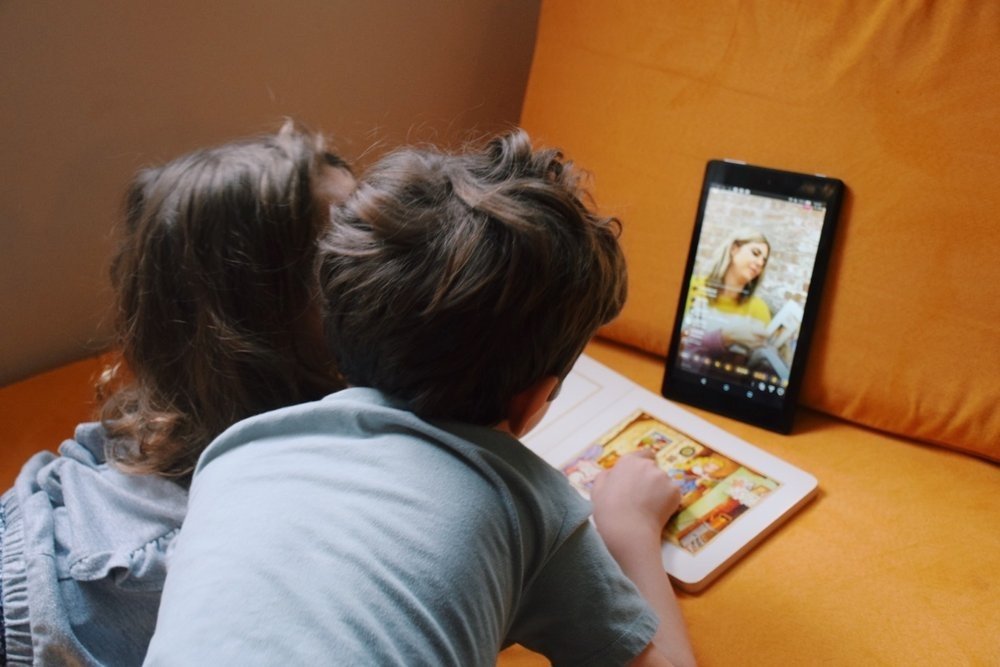Kindergarten Prep- Workbooks or Playground?
I get asked by lots of parents — "Is my child ready for kindergarten?” And I completely understand the concern. Starting kindergarten marks a big moment for your little one, and as a parent, you're right there, experiencing this exciting part of their early childhood learning.
Let's dive into the nitty—gritty. Check in with your preschooler and yourself and ask:
“Does my child know how to do these things most of the time?”
“Can they learn these new skills before kindergarten kicks off?”
Social—Emotional Skills For Kindergarteners
How does your child interact with others?
👉 Can your child play with kids around their age?
💡 Setting up playdates and going to community events at the playground and your local library are all great places to get your child comfortable with practicing their social skills.
💡During the play dates, always model how to introduce yourself. Your child is constantly picking up on the things you’re doing and this modeling will really help them.
💡Practice with your child, sit back and let them try it out on their own!
What about the art of turn taking?
👉 Being able to take turns is an important social foundation of being a student in the classroom. It’s a big component of everyday classroom activities and playing outside at recess.
Has your child ever lost a game?
👉 Gracefully losing is an important part of kindergarten! Losing teaches children resilience, empathy, and sportsmanship. These traits are essential for managing disappointments that will happen in school and in life.
👉 I get it, we all want to protect children from those big, upsetting feelings and it might seem easier to let them win in the moment. But trust me, you are helping your child if you let them play out all the feelings of losing. They’ll feel safer getting to regulate their responses with you first!
💡Playing lots of different games at home! Expose your child to winning and losing.
💡 Model losing for your child! Use simple words after you lose like “I’m disappointed I lost! But you know what? I had a great time and I don’t want to be upset. It’s okay I lost. I really liked playing that game with you anyway.”
💡And model how to move forward. “Should we play another game?” Or checking in with yourself, “Do I need a break to do something alone like color?” Show them all the possibilities of taking care of themselves and ways to do that.
💡Asking these questions out loud about YOU will help your child begin to use this as their inner voice. Modeling how we talk in front of our kids becomes their inner voice!
Can your child problem solve?
👉 Help guide your child at home start solving small problems on their own.
💡 Did a page rip that they were coloring? Encourage them to use some tape! Did they spill their water bottle? Have them grab some napkins!
Kindergarten can be tricky! Is your child able to handle tricky moments?
👉 There will be times when things don’t go your child’s way. Are they able to handle moments where things don’t turn out the way they want?
💡Practice coping strategies by using explicit language. For example, “Ugh! I feel upset. I was hoping for blueberry muffins at the coffee shop, but they're out. I could order a bagel instead. Maybe next time they'll have the muffin I want.
💡 Model some coping strategies like calm breathing. “I'm upset so I will take a few deep belly breaths to calm my body down.”
Getting to Know Themselves and Others: Do they know about themselves?
👉 Think the basics: how old they are, first and last name, address, parents names.
Have they spent time away from you before?
👉 Not just a few minutes, but for a couple hours or a full day. It's normal for your little one to feel nervous or upset when away from you, but it shouldn't be too overwhelming.
💡 Do you have a friend in the same stage? Try swapping kids for an hour to go get a treat or even for a walk around the block so your child has practice talking to another adult and feeling comfortable in small doses before heading to the classroom for the whole day!
Let me share with you the heart of what really counts for your child to be set for kindergarten. Check out the next blog post in this series.
For more tips and insights to nurture lifelong learners, hop over to my Instagram page.
And, don't forget to explore episodes on the podcast, Play On Words, where you’ll hear more about making learning fun and accessible for all.
I’m the founder of BCR, host of the Play on Words podcast, a consultant for the Chicago Public Library, and more! On the blog, I regularly share my tips, insights, and knowledge on early literacy.
The Latest Posts
grab Miss Beth’s ABC booklist
a free, downloadable list of more than 15 of Miss Beth’s favorite books for teaching your child their ABC’s










